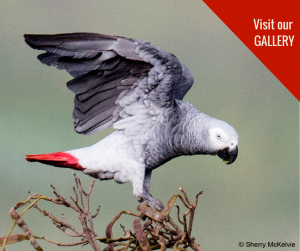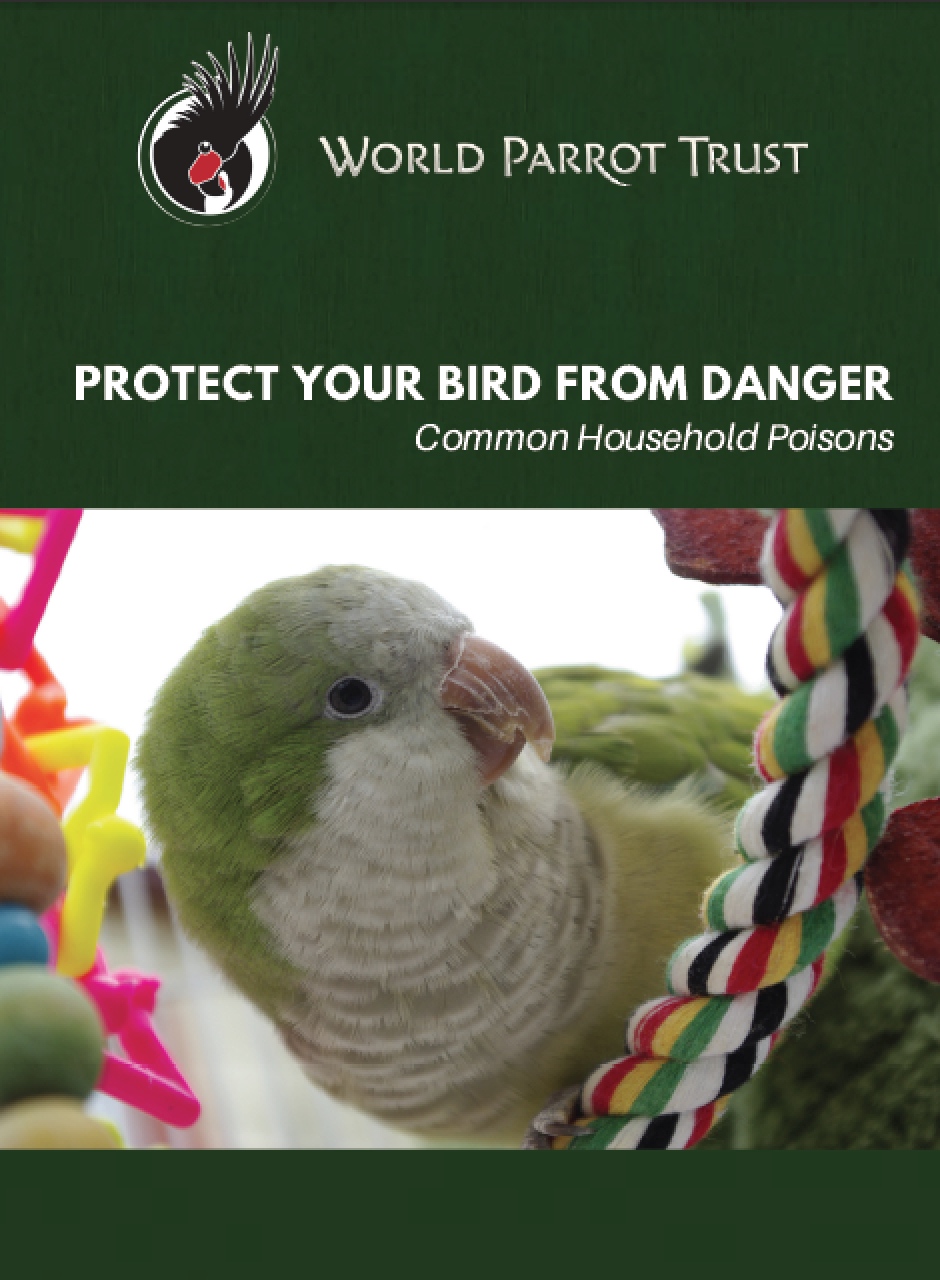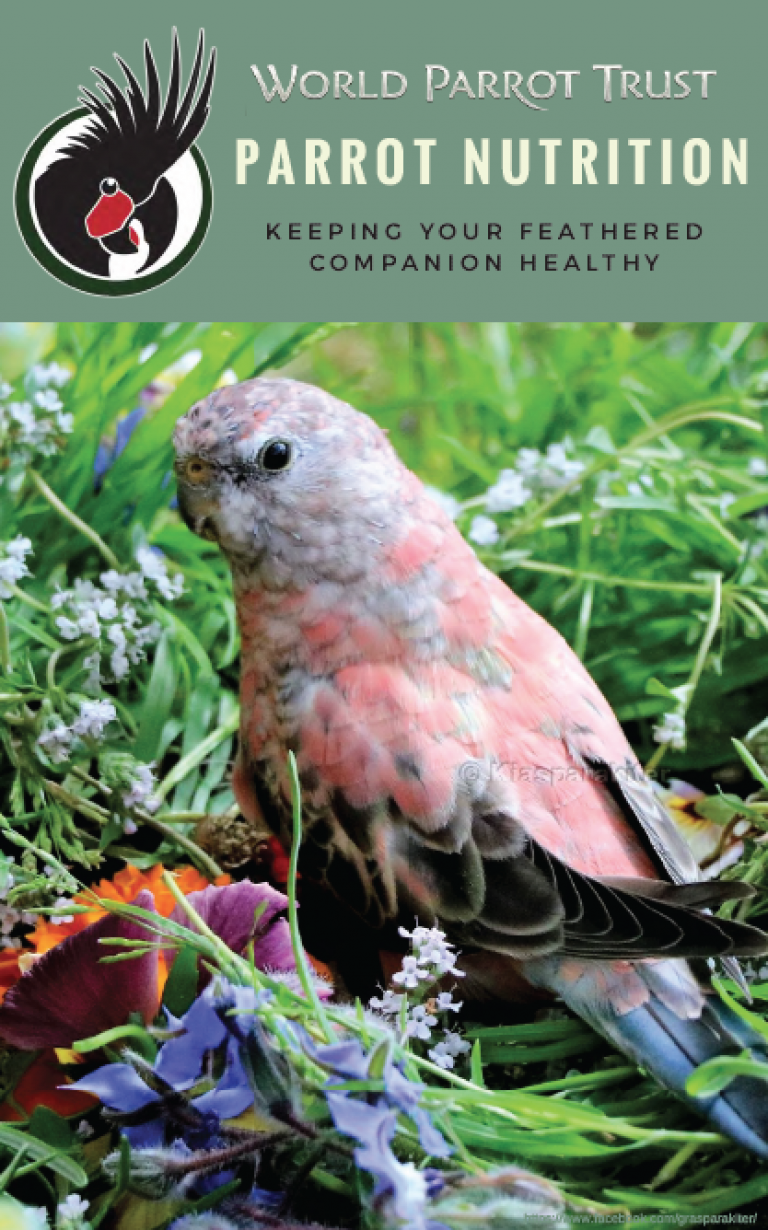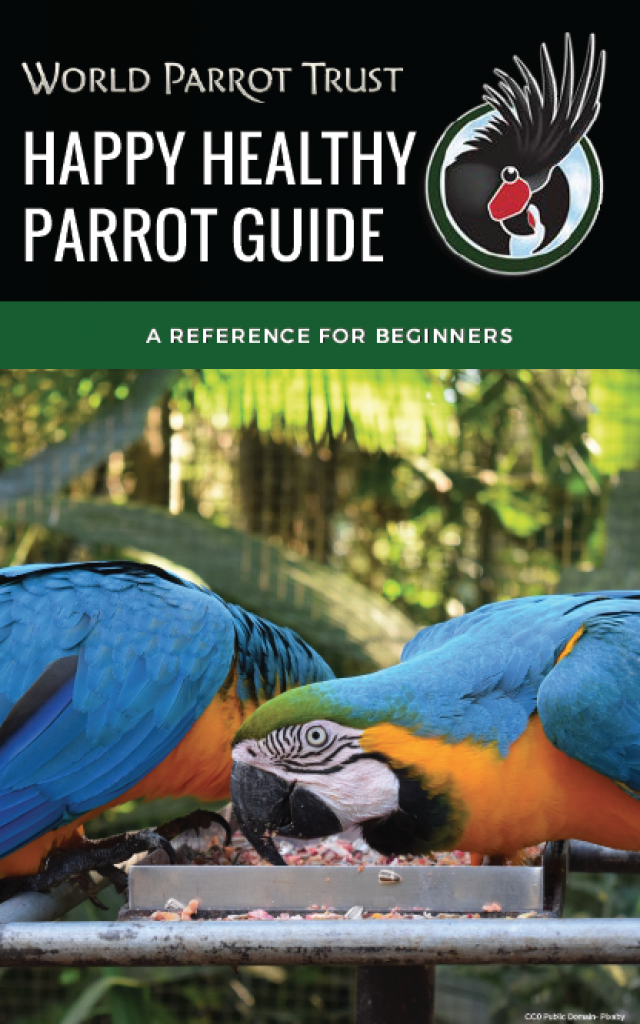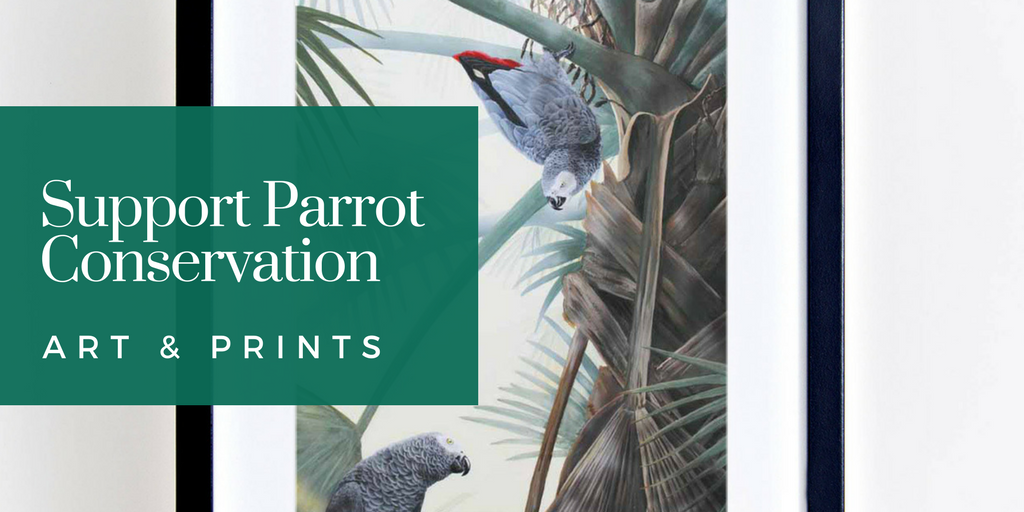
African Grey Parrots
The incredible birds we’ve come to know as African Greys actually encompass two parrot species – Grey & Timneh Parrots (Psittacus erithacus and Psittacus timneh). Highly intelligent with amusing personalities, African Greys make very popular companions. However, deforestation and abundant trapping for the wild bird trade has left both species sadly endangered.
Nesting near the tops of forest trees, gregarious Greys form large communal flocks of up to 1000 individuals, while Timneh Parrots gather in much smaller flocks of a few dozen.
Both species are known for mimicking the calls of other birds and mammals, as well as letting out a variety of whistles, squawks, shrieks, and screams while at rest and in flight.
Learn more about Grey and Timneh Parrots in the World Parrot Trust Encyclopedia.
Grey Parrots in the Wild
At severe risk from illegal trade, Grey & Timneh populations have been on a steady decline. Since 2001, the World Parrot Trust has supported ongoing studies on Grey Parrot behaviour and the effects of trade.
The WPT continues to work with a long list of partners and collaborators to aid the conservation of these precious parrots in countries throughout Africa.
Focus of Future Work:
- Rehabilitate and release confiscated birds
- Support local and regional authorities in meeting their CITES obligations
- Encourage sustainable alternatives to parrot trapping
- Re-establish wild populations in suitable areas of their former range
- Help create infrastructure to support future confiscations
- Raise awareness for the plight of wild African Grey & Timneh Parrots
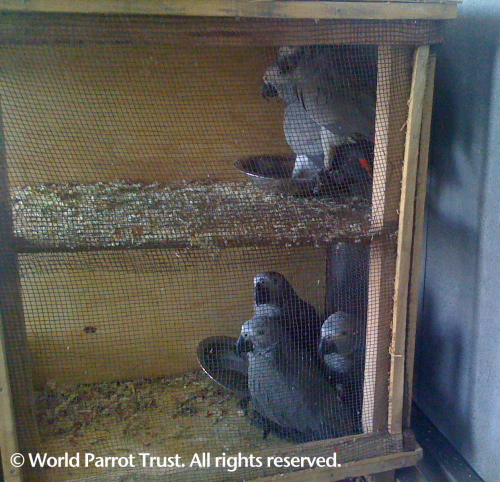
Discover what else the WPT is doing to protect Grey Parrots and how you can help!
Grey Parrot Videos
Find more grey parrot videos or explore any other species of parrot with the World Parrot Trust parrot encyclopedia.
Free Grey Parrot Wallpapers When You Subscribe to FlockTalk
Caring for Companion Greys
Known for their impressive intelligence, it is important to offer companion Greys a variety of complex toys to engage their active minds and prevent boredom, which can otherwise lead to feather plucking and other bad habits. Some examples include non-destructible hanging toys, push and pull toys, and food-finder toys.
In their natural habitat, Greys spend much of their days flying around, foraging for food. To ensure a healthy, happy parrot at home, Greys require large aviaries a minimum of 3m (9.8 ft) in length, allowing them to stretch their wings and burn off excess energy. African Greys enjoy eating a healthy variety of cooked beans and pulses, fruits and vegetables, spray millet, complete kibble, and other rearing foods.
Life with an African Grey is a long-term commitment, as these amazing birds live for approximately 50 – 60 years. Learn more about caring for companion Greys from the World Parrot Trust encyclopedia or from any of our free parrot owner resources below.
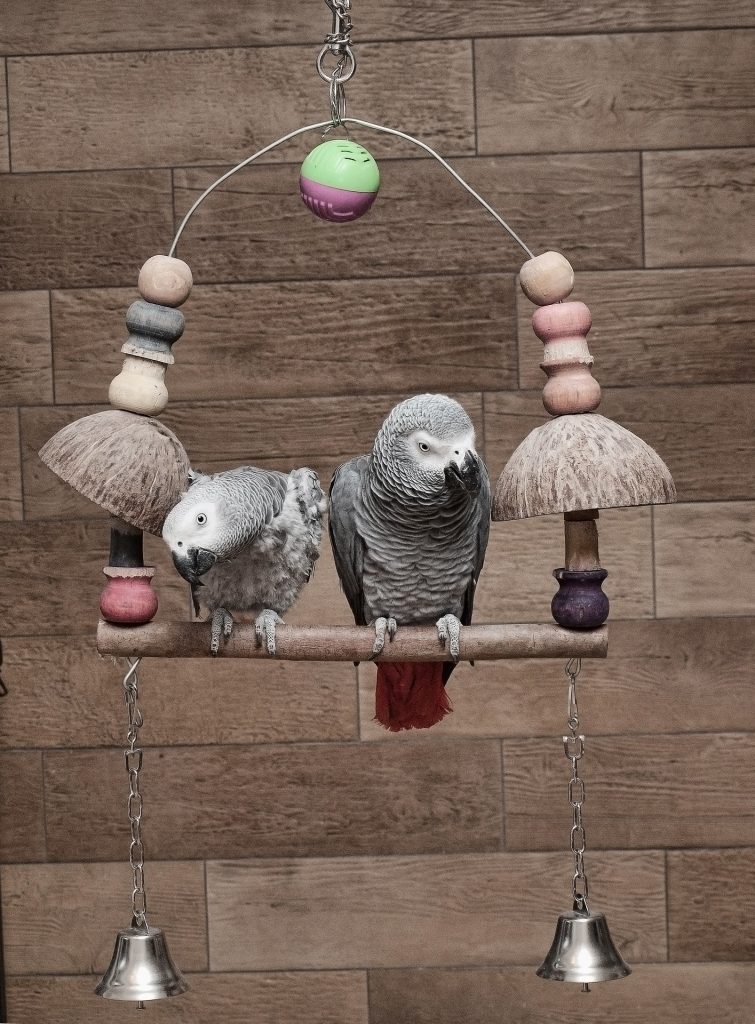
Parrot Owner Resources
Keep your bird healthy and safe. Get advice from the world’s leading parrot experts in our free guides.

© Copyright 2018 World Parrot Trust. All rights reserved.
